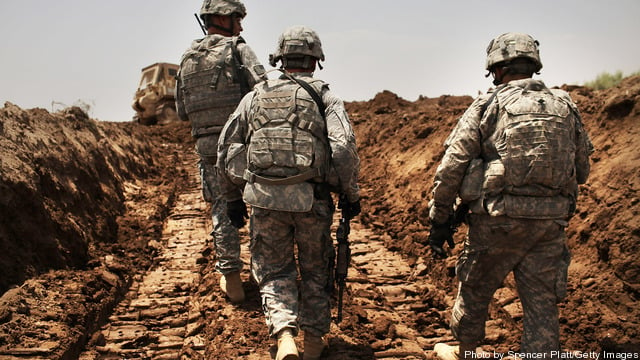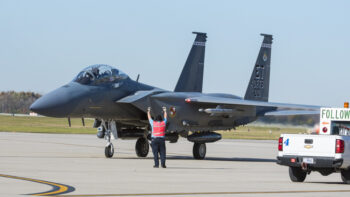 Washington: If there is one thing the Pentagon takes really seriously, it’s making plans. It has contingency plans for its original plans and if all else fails, well, there’s a plan for that too. But as far as anyone knows, the U.S. is pulling out of Iraq by the end of this year.
Washington: If there is one thing the Pentagon takes really seriously, it’s making plans. It has contingency plans for its original plans and if all else fails, well, there’s a plan for that too. But as far as anyone knows, the U.S. is pulling out of Iraq by the end of this year.
So when Alan Estevez, the Pentagon’s nominee to lead its logistics and materiel readiness office, told lawmakers at his Senate confirmation hearing yesterday afternoon there are “multiple plans” in place to support a continued American presence in Iraq past the New Year, it raised a few eyebrows in the audience.
According to Estevez, the department had a number of “trip wires” set, that, if triggered by the all too familiar DoD caveat of events on the ground, American planners could have the logistics train back up and running to support U.S.-led operations in country.
Under those plans, DoD would be able to almost immediately re-issue expiring contingency contracts for things like food services and fuel supply with local contractors. “We can turn… the volume on those contracts back up,” Estevez told members of the Senate Armed Services Committee.
But with a war that has now been declared over two times by two different administrations, why would the Pentagon plan for an extended deployment of American troops in Iraq past 2011?
Because U.S. forces are not leaving Iraq completely, and won’t be for a long time to come, according to one defense analyst.
The department’s play in Iraq is to give enough time to the government of Nouri Al-Maliki time to formally request an extension of American troops in country, said Brian Burton, a defense fellow at the Center of a New American Security.
Al-Maliki’s government must get the Iraqi Parliament’s approval should he want to keep a “politically viable deployment” of 10,000 to 15,000 U.S. troops in Iraq.
While sizable, that force is a drop in the bucket compared to the over 100,000 American troops in the field during the height of the war.
Time is running out for the Iraqis since the end of this month is the informal deadline for the Al-Maliki government to ask the U.S. to keep troops there, Burton says. The heat is clearly on, as Defense Secretary Leon Panetta made clear during last week’s trip to Iraq: “Damn it, make a decision”
France, Germany ink deal on way ahead for ‘completely new’ future European tank
Defense ministers from both countries hailed progress on industrial workshare for a project that they say “will be a real technological breakthrough in ground combat systems.”


























